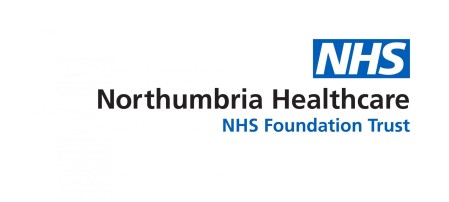Publish date: 27 May 2021
Northumbria Healthcare continues to meet shifting challenges

Patients in Northumberland and North Tyneside have been reassured that hospitals and community services continue to meet the changing challenges facing healthcare.
The board of Northumbria Healthcare NHS Foundation Trust met in public today, providing a picture of the situation at this point in time as the country turns its attention to recovering from Covid-19 amid the ongoing success of the vaccination programme.
Despite concerns about the spread of the latest coronavirus variant, not least in North Tyneside, Sir James Mackey, the Trust’s chief executive, noted that positive cases and hospitalisations remain low across the region.
However, emergency department attendances have now returned to the levels seen before the pandemic and healthcare partners across the North East and Cumbria are continuing to urge the public to think pharmacy, GP and 111 first and only attend A&E or call 999 if you have serious or life-threatening emergencies.
The meeting also heard that primary care is extremely busy as well, with the number of GP appointments nationally in March 20% higher than they were in February. Board members were reassured that the system as a whole continues to work well together here, avoiding the conflict between primary and secondary care seen elsewhere.
Against this backdrop, Sir James emphasised that the Trust is also looking forward, with a focus on clearing the Covid backlog and plans being put in place for winter 2021/22.
The recovery effort was underlined during an update to the meeting from the Clinical Support and Cancer Services Business Unit, which highlighted that there is no Covid backlog in the Trust’s radiology services, with waiting times remaining on target.
But there have been some months recently where one of the national targets relating to cancer waiting times have not been met.
A Trust spokesperson said: “With fewer patients visiting GPs during the first phase of the Covid-19 pandemic, we saw an increased number of referrals at the back end of last year and early part of 2021, which has led to some months where the target for 85% of patients to have started treatment within 62 days has not been met.
“However, our performance has always been around 80% or higher, comfortably above the national average of 75% and is among the very best in the region. Our average performance over the past 12 months is above target at 85.65%.
“Regardless, cancer waiting times remain a key area of focus for the Trust and our priorities for this year include efforts to increase oncology day unit capacity and to develop an acute oncology seven-day service.”
In relation to new developments, the meeting also received an update on the construction of a new sterilisation facility for medical equipment on the site of the Northumbria hospital in Cramlington, which is required as the Trust’s current sterilisation facilities are coming to the end of their life.
This £8million scheme, which is the first by the Trust to be net-zero in carbon emissions, is on track to be completed next month and then start operating in July/August.
This is among a range of new projects in various stages of development, including the new hospital in Berwick, which are made possible thanks to Northumbria Healthcare’s strong financial performance.
A report to the board on the draft financial performance for 2020/21 revealed a surplus of £3.8million despite the impact of the pandemic.
Patient experience remains good despite pressures on staff
The Trust’s data on patient experience continues to show high levels of satisfaction with the care received, although real-time staff monitoring has shown some drops in recent months.
Annie Laverty, the Trust’s chief experience officer, said: “This slight increase in the numbers of staff feeling less engaged and more exhausted is not a surprise given that it comes on the back of a very difficult, high-pressured and unprecedented 14 months.
“Our in-depth staff experience programme, which included surveying staff on a weekly basis over the last year, is to ensure we can react quickly to the issues we face.
“There have been a range of initiatives to support staff wellbeing and mental health introduced during the pandemic, over and above the measures that were already in place for our staff. These measures, which include access to counselling and the development of wellbeing spaces, remain in place to further support colleagues over the coming weeks and months.”
Nurse staffing
Marion Dickson, Northumbria Healthcare’s executive director for nursing, provided an update on nurse staffing and revealed an ambition to recruit 50 new nurses in the next few months.
A spokesperson for the Trust added: “Ensuring that we have enough nurses to provide high-quality care to our patients is incredibly important for us and while the rates for nurses on shift vary from day to day and ward to ward, appropriate mitigations are always in place to ensure safe staffing levels.”
Marion also confirmed that a significant amount of effort is being put into recruitment campaigns and other initiatives to train more people up and grow our own through the nursing associate route. “We also work hard to support our staff so that they are happy and healthy in the workplace,” she said.
